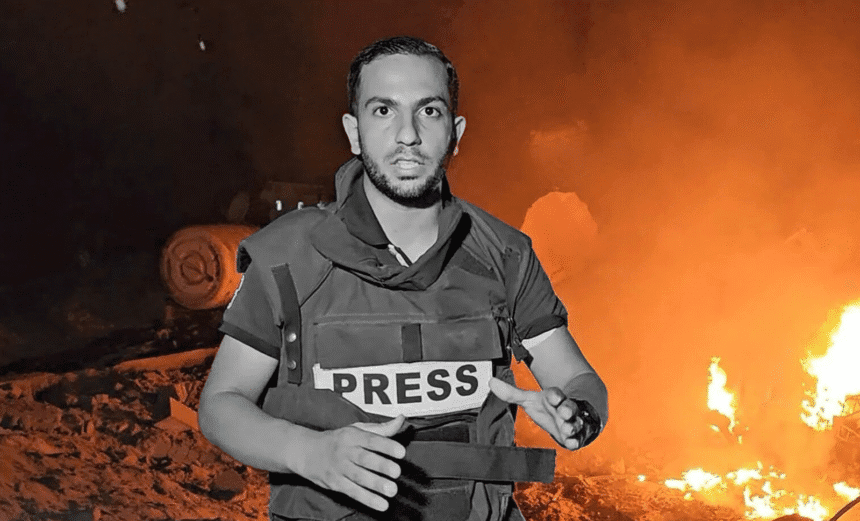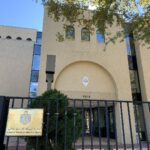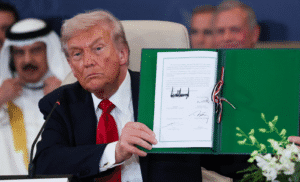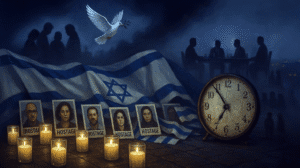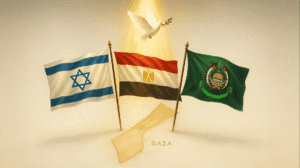On the night of 10 August 2025, an Israeli airstrike hit a media tent outside al-Shifa Hospital in Gaza City, killing at least six journalists and one assistant. Among the dead were Al Jazeera Arabic correspondent Anas al-Sharif (28), his colleague Mohammed Qreiqeh, camera operators Ibrahim Zaher, Mohammed Noufal, and Moamen Aliwa, as well as local freelance reporter Mohammed al-Khaldi. The strike, which occurred around 11:35 pm (20:35 GMT), also injured two others and damaged part of the hospital’s emergency department. Health officials said the journalists had been sheltering near the emergency entrance when the missile hit.
Anas al-Sharif was one of the last remaining voices reporting from northern Gaza after an information blackout had cut off most international media. Hours before his death, he posted online about the escalating bombardment in Gaza City, urging the world not to forget the people trapped there. His work had gained wide recognition for documenting the realities of life under siege. The Israel Defense Forces (IDF) confirmed carrying out the strike but claimed al-Sharif was the head of a Hamas militant cell. They cited intelligence and documents allegedly recovered in Gaza, though no independent verification has been provided. Al Jazeera and several press freedom organizations rejected this account, calling the attack a premeditated assassination aimed at silencing one of the few independent journalists still reporting from the ground.
Global reactions were swift. Al Jazeera condemned the killings as “a blatant and premeditated attack on press freedom.” The Committee to Protect Journalists (CPJ), Reporters Without Borders (RSF), Amnesty International, and the United Nations human rights office all issued statements denouncing the strike. CPJ accused Israel of a dangerous pattern of branding journalists as militants to justify targeting them. Irish Deputy Prime Minister Simon Harris described the deaths as the silencing of vital voices and joined protests in Dublin and Belfast demanding humanitarian action. French President Emmanuel Macron called for UN peacekeepers to stabilize Gaza and emphasized the urgent need to protect journalists. At the United Nations, the Palestinian mission accused Israel of deliberate assassination, while Secretary-General António Guterres’s office urged an independent investigation.
The strike has added to an already devastating toll, with Gaza’s ongoing war becoming the deadliest conflict for journalists in modern history. Since October 2023, between 180 and 237 media workers have been killed, depending on varying reports from Gaza officials and RSF. Most were local reporters who risked and in many cases lost their lives documenting the war. For many observers, the deaths of al-Sharif and his colleagues represent not just the loss of individual journalists but the silencing of critical, firsthand testimony from one of the world’s most dangerous conflict zones.

